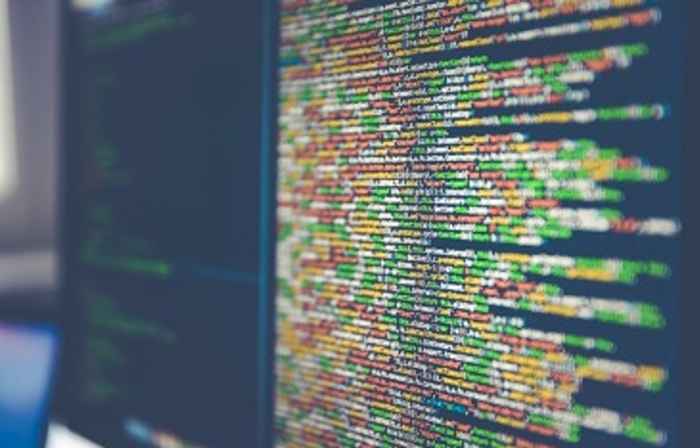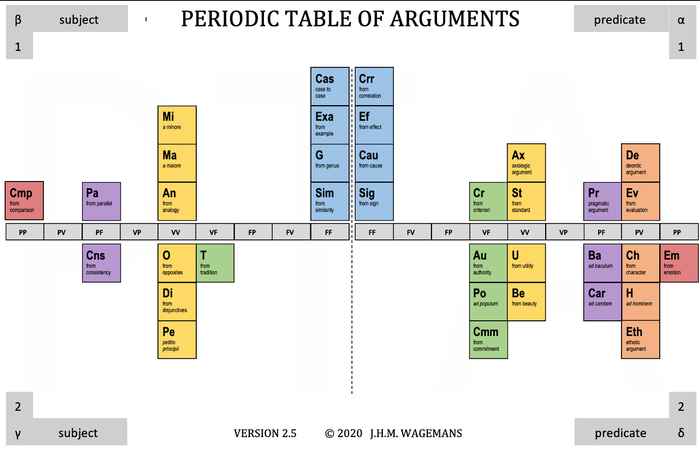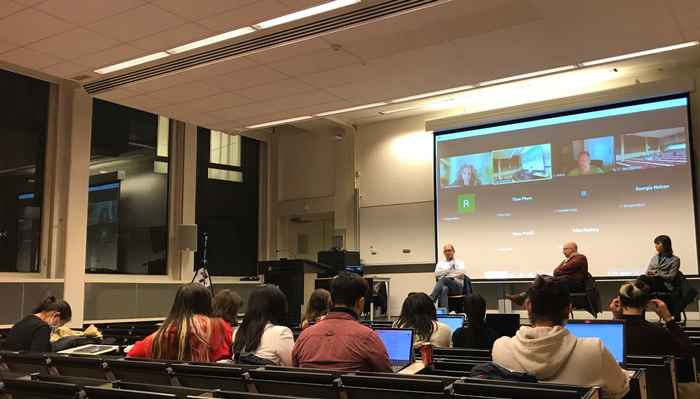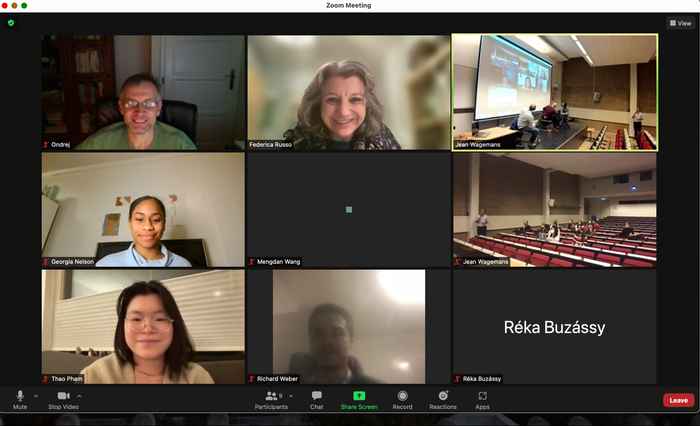Highlighted: From Fact-Checking to Argument-Checking
20 December 2021

In September 2021, the IIS Honours module From Fact-Checking to Argument-Checking, developed by Dr. Jean Wagemans and Dr. Federica Russo, was launched. An interesting, socially relevant and interactive course about fake news and disinformation. Wagemans explains the reason for developing this module: "We live in the digital information era. Every one of us is confronted daily with tons of information and we need to consider the problems of dealing with both the quantity and quality of that information. It is too much, and it grows too fast. It is no surprise that disinformation and misinformation spread so quickly."
Russo adds: "We need tools to decide for ourselves about the quality of this information. What and whom should we believe, and why? We also need tools to operate out there, to analyse and evaluate arguments and to develop a repertoire for responding to ‘bad’ arguments. A lot is done in terms of fact-checking, but we think we should pay more attention to argument-checking as in many types of discourse, factual information is embedded in argumentation."
Assignments 'in the wild'
Why do disinformation and misinformation spread so quickly? What does it mean to check arguments? How can this be done in various contexts, such as in news articles, on social media or in scientific publications? What ‘ethics of argumentation’ should we adopt?

Using tools based on scientific literature, including the theory of the Periodic Table of Arguments, the students analysed and evaluated various argumentative texts which they found 'in the wild'.
Students articulated their thoughts on the ethical aspects of argumentation, selected argumentative texts of their own interest, developed skills in argument-checking and performed lots of small assignments on the materials. In addition, they produced an argumentative text themselves and wrote a reflection about the ethical boundaries of this exercise.
Interactive panel discussions
Russo adds: "We also organised two hybrid panel discussions, for which we invited experts in the field who were interviewed by our students. One panel was on the prospects of automating the analysis and evaluation of arguments, focusing on the question of whether it is possible and desirable to have artificial intelligence involved in the process of argument-checking. The second panel focused on the societal relevance of argument-checking, and what a social entrepreneur could do with it."


Wagemans comments: "The two panels gave us insight into how rapidly the area of argumentation technology is developing, for instance with chatbots, decision-making tools and other artificial intelligence put to use for the purpose of changing beliefs and behaviour. And also of the desirability or ethical dimension of these developments, including how this could be of relevance to social entrepreneurs."
Evaluation
Students did self-reflection exercises, which assessed the depth of their thinking and ability to be critical towards their own argumentative practice. They also did a series of assignments aimed at enhancing their skills in various aspects of argument-checking. Russo explains: "We actually did a pre-test and a post-test, that do not count towards the final grade, to test our approach to argument-checking. We don’t have the results yet, but if we did our job well, students should indeed have improved in the post-test!"
The results of the students' portfolios were better than expected. The students picked up the theoretical insights and level of reflection quickly and were able to apply them to real-life argumentation in different contexts. This went well beyond the goals that were set at the beginning of the module. Wagemans comments: "Their reflections in the portfolio show the students have become more aware of the fact that many types of communication are argumentative, in the sense that they are aimed at changing your mind or behaviour."
Russo concludes: "The students were very cooperative and open-minded. It was wonderful to develop this course from our different disciplinary backgrounds, because we could show the students how a reflection on technology and media needs a theory of argumentation and skills in critical thinking and argument-checking."
The art of argumentation is extremely valuable. I think we need that for our society, we need that for our future, with the big challenges in all places, the different views in communities and also in the sometimes very rough debates which are not based on scientific information.Prof. Dr. Karen Maex, Rector Magnificus of the UvA
More information
The IIS Honours module From Fact-Checking to Argument-Checking was developed by Dr. Jean Wagemans, coordinator of the research group Language and Cognition in Argumentation (LANCAR) at the ACLC, and Dr. Federica Russo, researcher at the ILLC and research affiliate at LANCAR. The course draws on insights from their research project on Argument-Checking, which aims to contribute to the improvement of people’s rhetorical literacy and critical thinking skills by developing procedures for assessing and producing arguments that are embedded in an ethical framework for argumentation.